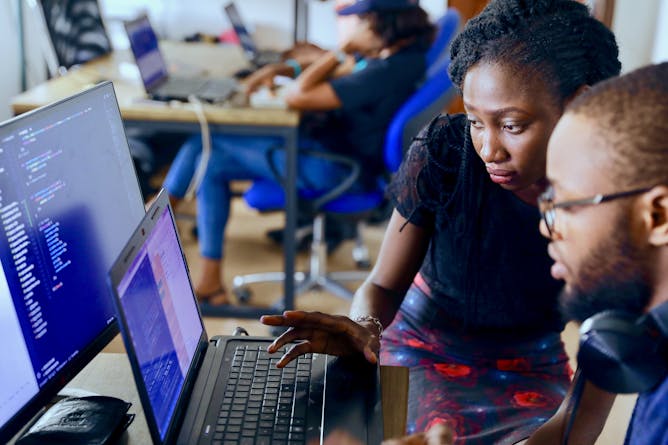|
Do you have a climate change denier among your friends or family? If so, Chui-Ling Tam of the University of Calgary has a thought-provoking piece today in The Conversation Canada about how branding them as such isn’t very helpful. She writes: “Labelling someone who is confused about climate change as a denier does not advance us to a world of collective effort to confront climate change.”
Alberta is about to amend a law that gives live-in couples the same property rights as married couples after they’ve been together for three years. Sounds like a good idea, and though it may be well-intentioned, Erez Aloni and Adam Vanzella-Yang of the University of British Columbia argue that it puts undue pressure on couples and imposes standards of traditional matrimony upon them.
Tracie Risling of the University of Saskatchewan writes today that nurses will be at the forefront of delivering digital healthcare. But are they prepared? While nurses are well-educated to assess and address many issues of accessibility, the current capacity of the profession to meet digital needs is less certain.
Finally, Ivan Ruby and Ann-Louise Davidson of Concordia University have a similar question about youth. Learning to code is often presented as a solution to job market problems of the 21st century, but are students really learning the competencies they’ll need?
We hope you’ll enjoy these four great reads, and that you’ll also check out La Conversation Canada, launching tonight. It’s the latest member of The Conversation family and we’re thrilled to be providing great content in both of Canada's official languages.
Regards,
|

We are not doing a good job of communicating climate change. People have diverging interpretations of how climate change fits into their own stories.
(Unsplash)
Chui-Ling Tam, University of Calgary
We must recognize the complexity of perspectives on climate change if we want to confront it.
|

‘Wait, we’re WHAT?’ Why laws that consider live-in couples to be married may be well-intentioned, but erode free choice and put pressure on relationships.
Rawpixel/Unsplash
Erez Aloni, University of British Columbia; Adam Vanzella-Yang, University of British Columbia
Reforming laws relating to unmarried couples is long overdue. But it can also represent an affront couples’ autonomy and erodes the freedom to choose to live in non-marital situations.
|

Truly learning to code involves more than episodic experiences. Students should ideally develop a ‘coding mindset.’
Nesa by makers/Unsplash
Ivan Ruby, Concordia University; Ann-Louise Davidson, Concordia University
Learning to code is often presented as a solution to job market problems of the 21st century, but are students really learning the competencies they will need?
|

Nurses will soon be required to provide support and access for e-healthcare.
rawpixel/Unsplash
Tracie Risling, University of Saskatchewan
Nurses will be at the forefront of delivering digital healthcare, but are they prepared?
|
Arts
|
-
Brian Hoyle, University of Dundee
The 1939 classic has influenced more films than any other film before or since.
|
|
Business + Economy
|
-
Jeffrey Kucik, University of Arizona
Despite agreeing to a ceasefire, the two sides offered differing depictions of their trade war truce that show a lasting peace may still be out of reach.
|
|
Science + Technology
|
-
Christopher Gaffney, Lancaster University; Bethan Phillips, University of Nottingham
New experiment on the International Space Station could help us tackle muscle loss in astronauts.
|
|